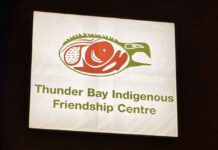Sovereignty, Indigenous partnerships, licencing were main themes
OTTAWA – BUSINESS – For the first time ever, two federal ministers spoke at a cannabis conference – Health Minister Ginette Petitpas Taylor and Border Securities Minister Bill Blair, who is in charge of Canada’s Cannabis Act. Both Ministers made encouraging statements yesterday on the need to further include Indigenous peoples in the hemp and cannabis industry.
“We are supporting Indigenous communities who want to have a role in the cannabis landscape,” said Minister Petipas Taylor, who pointed out that Canada’s legalization and regulation of cannabis presents an historic opportunity to do things better. “Our government respects Indigenous peoples needs, desires and perspectives.”
Minister Blair pointed out that Indigenous Services Canada has recently modernized its economic development policies in order to address participation in the cannabis industry. “Our government recognizes the important link between economic development and improved outcomes in health and social development. The Cannabis Act provides an open and fair licencing process.”
When asked by a delegate if the government would respect the Algonquin sovereign right to produce and sell cannabis in the territory that includes Ottawa, Minister Blair replied: “We acknowledge and respect the jurisdiction of First Nations. There is an important nation to nation discussion on how both of our jurisdictions are recognized, especially in the health and safety of our peoples.”
Isadore Day, Wiindawtegowinini, CEO of Bimaadzwin, who chaired the conference, said there is a multi-billion-dollar potential for partnerships among the 300 delegates, exhibitors and fledgling Indigenous companies/retailers who were present. “That mainstream cannabis train is going to keep on going. Let’s jump on our own track, under our own steam. At the same time, we need to build trust with governments and the Canadian public. This is a once in a lifetime opportunity for all our Nations to partner and participate in this growing industry.”
Kahnawake Grand Chief Joseph Tokwiro Norton stressed that his community is developing its own cannabis law in order to ensure public health and safety and access to a population of three million in the Montreal area. “We are already a major contributor to the economy. We employ a lot of people. We need to educate the provincial and federal governments on what we do. We’re going to take advantage of our location. If cannabis is one product that’s going to be in demand, then let’s do it.”
Opaskwayak Cree Nation Onekanew Christian Sinclair brought his remote Manitoba community out of debt by investing and partnering in cannabis production and retail companies in Canada and California. “Because of the current cannabis shortage for years to come, this is a golden opportunity for all First Nations to get into the game.”
Bimaadzwin continues to work towards clarifying and setting out challenging policy discussions. These challenges are being identified by working with Indigenous cannabis entrepreneurs, communities, and leaders within First Nation, federal, and provincial jurisdictions in regard to participation in the hemp and cannabis economy.







